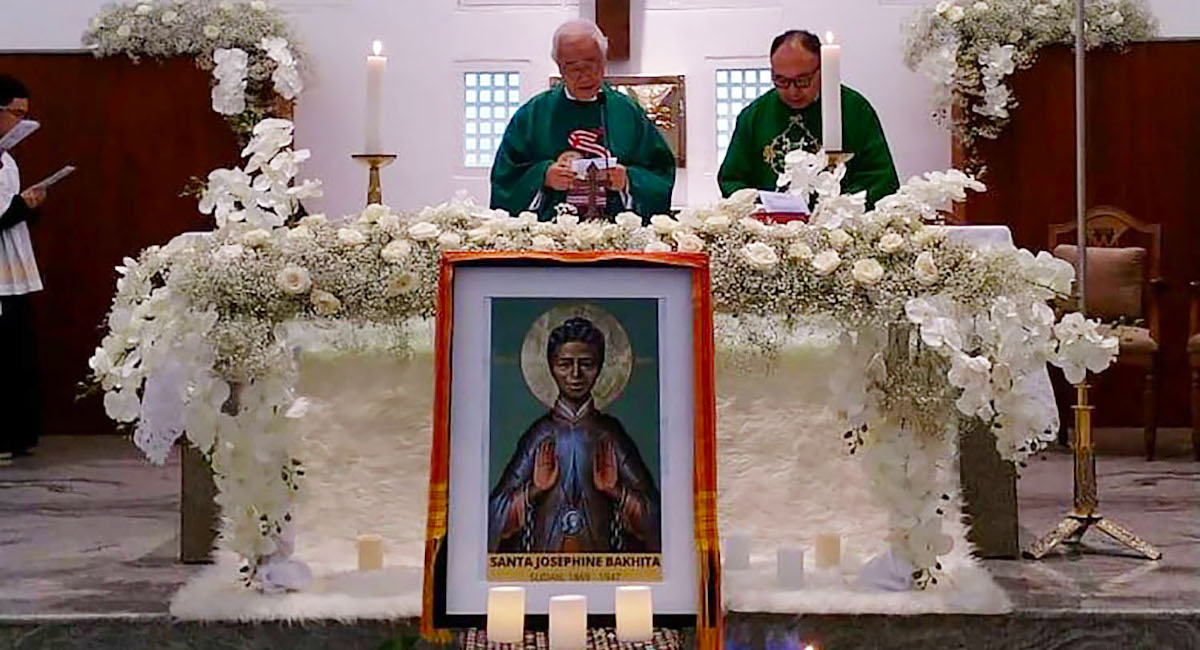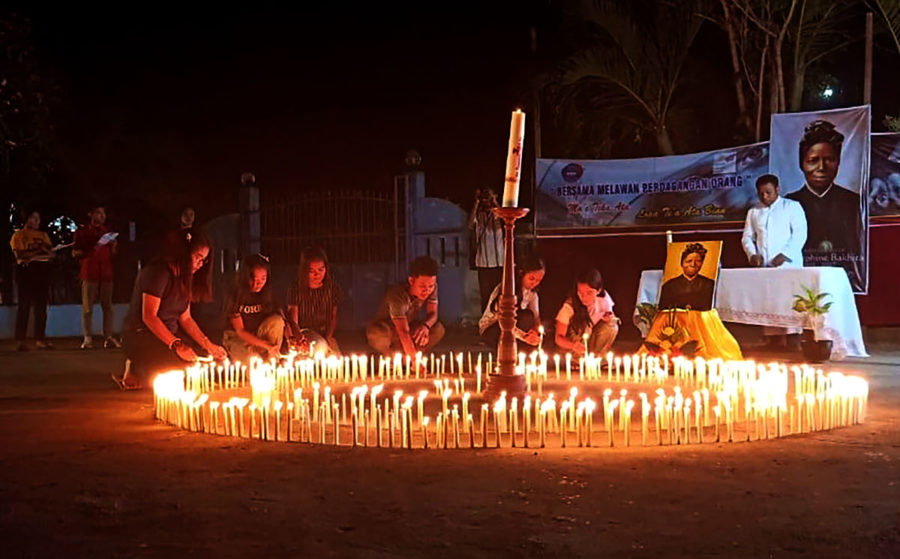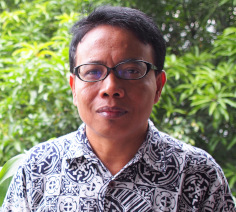 “Since six years ago, I have not heard news of my daughter. I have been looking for information about her, but have not found anything. I went to Soe looking for Sara Boli (the suspected trafficker), but someone informed me that she was in Kefa. Without her address in Kefa, I could not meet her,” Martinus Neonbota expressed his desperation to Sr Laurentina Suharsih. The father has not heard from his 16-year-old daughter, Marcelina, for six years. He does not know where she is, whether she is still alive, and if she is still alive what is she doing now. The missing girl from Timor Tengah Selatan, Nusa Tenggara Timur, Indonesia is a victim of human trafficking. Now, her family knows only her name and nothing else about her present state.
“Since six years ago, I have not heard news of my daughter. I have been looking for information about her, but have not found anything. I went to Soe looking for Sara Boli (the suspected trafficker), but someone informed me that she was in Kefa. Without her address in Kefa, I could not meet her,” Martinus Neonbota expressed his desperation to Sr Laurentina Suharsih. The father has not heard from his 16-year-old daughter, Marcelina, for six years. He does not know where she is, whether she is still alive, and if she is still alive what is she doing now. The missing girl from Timor Tengah Selatan, Nusa Tenggara Timur, Indonesia is a victim of human trafficking. Now, her family knows only her name and nothing else about her present state.
Many victims of human trafficking like Marcelina cannot be easily tracked down. They have only names but their fate and whereabouts are not known. Given the hidden nature of human trafficking, it is almost impossible to understand the full scope and scale of the issue. According to the latest report of the International Labor Organization, an estimated 40.3 million people lived in some form of modern slavery in 2016. About 70 per cent of whom were women and girls who were either forced under threat to work or marry. Of those figures, an estimated 24.9 million men, women, and children lived in Asia and the Pacific, putting the region behind Africa in the prevalence of modern slavery with 6.1 per 1,000 people. The highest prevalence (per thousand) in the region was in South Asia (7.7) followed by Southeast Asia (6.6), East Asia (4.1), and the Pacific (2.7).
Greatly concerned with the problem of human trafficking, Pope Francis declared 8 February, the feast of St Josephine Bakhita, patron saint of slaves, as World Day of Prayer, Reflection, and Action Against Human Trafficking. The declaration came after a request from Talitha Kum, the worldwide Network of Consecrated Life Against Human Trafficking. The prayer day is an invitation for everyone to be aware and to respond to the seriousness of human trafficking and the suffering it inflicts on millions of people.
 In Indonesia, Christian communities and activists fighting human trafficking offered prayers and Mass on 8 and 9 February. In Kupang, Nusa Tenggara Timur, the Eastern Province of Indonesia where a great number of human trafficking cases are found, the migrant care networks led by Sr Laurentina and Protestant clergy, Emmy, conducted prayer and public awareness activities on the danger of human trafficking in the parish hall of Saint Mary Assumpta. The event was attended by more than 80 activists and observers of human trafficking.
In Indonesia, Christian communities and activists fighting human trafficking offered prayers and Mass on 8 and 9 February. In Kupang, Nusa Tenggara Timur, the Eastern Province of Indonesia where a great number of human trafficking cases are found, the migrant care networks led by Sr Laurentina and Protestant clergy, Emmy, conducted prayer and public awareness activities on the danger of human trafficking in the parish hall of Saint Mary Assumpta. The event was attended by more than 80 activists and observers of human trafficking.
Fr Ignatius Ismartono SJ, Director of the Jesuit centre for migrant workers, Sahabat Insan, celebrated the Sunday Mass in the chapel of Jesuit Kanisius College in Jakarta with Fr Paul Rahmat SVD, Director of Vivat Indonesia, concelebrating. The Mass was attended by parishioners, religious sisters, brothers, priests and scholastics, and activists.
During his homily, Fr Ismartono invited Sr Geno, the secretary of Vivat Indonesia, to share her consolations and desolations in working against human trafficking. Sr Geno said the fight against human trafficking is very challenging as the chain of the organised crime network is very neat, and thus, difficult to break. However, she sees the close collaboration between the pastoral care networks for migrant workers and the government as an opportunity to combat the crime.
After the homily, Fr Ismartono invited the congregation to light their candles and pray for the victims of human trafficking through the intercession of St Josephine Bakhita. After the Mass, they gathered at the meeting room of the Jesuit Residence to watch Minah tetap Dipancung (The Beheading of Minah). The film tells the story of an Indonesian woman migrant worker who is tortured by her employer and then sentenced to death.
Respected defender of migrant workers’ human rights Wahyu Susilo said the film is based on a true story. The director of Migrant Care Indonesia regretted the inability of the Indonesian Government to provide adequate protection for its citizens working abroad.
At the end of the gathering, Fr Ismartono recalled the words of Pope Francis: “Don’t think that human trafficking is far away from us. It is around us. Do you like buying cheap products? Be careful! It may be produced by victims of human trafficking. Therefore, it is important for us to gradually reduce the factors that cause human trafficking.”
 Fr Adrianus Suyadi SJ is the Secretary for Social Ministries of the Jesuit Conference of Asia Pacific.
Fr Adrianus Suyadi SJ is the Secretary for Social Ministries of the Jesuit Conference of Asia Pacific.

